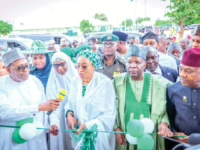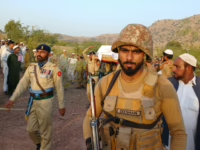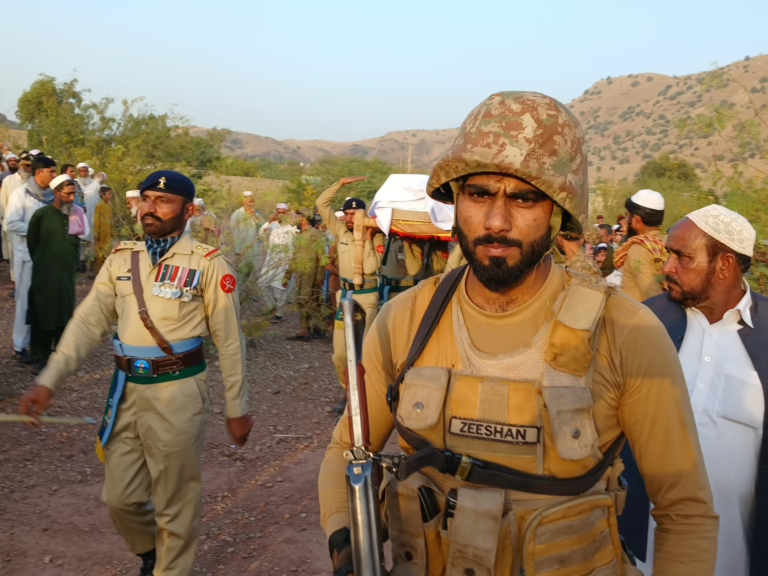Islamabad, Pakistan – The visit of Pakistan’s Foreign Minister Ishaq Dar to Kabul in April, where he met with Afghan Taliban’s Amir Khan Muttaqi, was widely interpreted by experts as a potential turning point in the strained relations between the two neighbors, who were once close allies.
Further engagements in May and August, facilitated by China, seemed to confirm hopes for a diplomatic thaw.
However, a violent weekend of confrontations along the loosely controlled border has abruptly stalled these diplomatic efforts. Pakistan claims to have killed over 200 Taliban fighters, while the Taliban government reports 58 Pakistani soldiers killed. These casualties highlight the precariousness of the earlier détente.
Pakistan, facing a sharp rise in militant attacks-particularly in the northwestern Khyber Pakhtunkhwa province where numerous military personnel have lost their lives-accuses the Taliban of harboring armed factions that launch cross-border assaults.
The Taliban refutes these allegations. Yet, Kabul was shaken by explosions and gunfire on Thursday night. Pakistan neither confirmed nor denied involvement, but the Taliban accused Pakistan of orchestrating attacks in Kabul and an eastern province, vowing retaliation.
Hostilities resumed on Saturday night, with Pakistan acknowledging at least 23 soldiers killed and 29 wounded, and claiming control over more than 21 posts inside Afghan territory. The Taliban has not verified these casualty figures.
While the immediate violence has subsided, the clashes evoke comparisons to Pakistan’s tense relations with India, especially after New Delhi blamed Islamabad for the killing of 26 civilians in Indian-administered Kashmir in April.
Similar to the Taliban’s denial of sheltering anti-Pakistan militants, Pakistan rejects any involvement in attacks in Kashmir. Conversely, India has long accused Pakistan of supporting militant groups targeting its territory.
Some analysts suggest Pakistan is attempting to establish a “new normal” with the Taliban, signaling that future attacks originating from Afghan soil will provoke retaliatory strikes inside Afghanistan. This approach mirrors India’s stance against Pakistan following the April incident, which Islamabad had condemned.
India’s May strikes inside Pakistan led to a four-day conflict involving missiles, drones, and artillery exchanges.
Experts believe that although the recent border clashes have quieted, tensions will persist, and a durable resolution remains distant.
Root Causes of the Border Conflicts
Among the various militant groups operating from Afghanistan, Pakistan views the Tehreek-e-Taliban Pakistan (TTP) as the most significant threat. Established in 2007 during the U.S.-led “war on terror,” the TTP has waged a persistent insurgency against Islamabad.
The group demands the enforcement of strict Islamic law, the release of imprisoned members, and the reversal of the merger of Pakistan’s former tribal regions with Khyber Pakhtunkhwa province.
Although ideologically aligned, the TTP operates independently from Afghanistan’s Taliban.
Pakistan accuses Kabul of providing safe haven not only to the TTP but also to other groups like the Balochistan Liberation Army (BLA) and Islamic State Khorasan Province (ISKP).
Since the Taliban’s return to power in August 2021, TTP attacks have surged dramatically. According to the U.S.-based Armed Conflict Location & Event Data (ACLED) project, the TTP conducted over 600 attacks against security forces in the past year alone, with 2025’s figures already surpassing those of 2024.
Recent assaults have resulted in the deaths of more than two dozen Pakistani soldiers, including officers, with the latest on October 8.
Regional powers such as China, Iran, and Russia have repeatedly urged the Taliban to dismantle the TTP and other militant groups operating from Afghan territory. This appeal was reiterated during the Moscow Format talks in early October, attended by Taliban Foreign Minister Muttaqi.
Abdul Basit, a militancy expert and research fellow at Singapore’s S Rajaratnam School of International Studies, anticipates increased diplomatic efforts soon, likely led by nations maintaining strong ties with both Pakistan and the Taliban, including Gulf states and China.
“It’s plausible that Islamabad and Kabul will convene again in a neutral location to resume dialogue, but tensions will likely fluctuate, with the possibility of renewed border clashes,” Basit told Al Jazeera.
Seema Ilahi Baloch, a former Pakistani ambassador involved in past informal talks with Afghanistan, noted Islamabad’s failure to convince the Taliban to prevent Afghan soil from being used for attacks against Pakistan.
“Both countries must recognize that such conflicts hinder bilateral cooperation and destabilize the region,” she said. “China, wielding influence over both sides, could serve as a mediator to restore diplomatic relations.”
Pakistan’s Evolving Strategy
Analysts observe that Pakistan’s leadership is increasingly compelled to respond to the rising death toll from attacks it attributes to militants operating from Afghanistan.
The Islamabad-based Centre for Research and Security Studies (CRSS) reports over 2,400 security personnel deaths in the first nine months of this year, marking the deadliest period in a decade.
Basit explains that Pakistan is attempting to establish a precedent where any militant attack traced back to Afghanistan-whether by the TTP or others-will trigger a forceful response on Afghan soil.
“Pakistan’s message is clear: attacks originating from Afghanistan will be met with equal force, holding the Afghan Taliban accountable for facilitating such actions,” he said.
While this approach resembles India’s retaliatory policy against Pakistan after the April Kashmir attack, Basit highlights a crucial difference: the military imbalance between Pakistan and the Taliban is stark, unlike the India-Pakistan dynamic.
Pakistan demonstrated its military capability in May by downing several Indian jets during retaliatory strikes. In contrast, despite their combat experience, the Taliban lack the sophisticated equipment and training of Pakistan’s professional army.
Aamer Raza, assistant professor of political science at the University of Peshawar, notes growing impatience within Pakistan’s policy circles toward Afghanistan.
“While some engagement is unavoidable, significant breakthroughs should not be expected soon. Pakistan’s military superiority was evident in recent clashes, yet it exercised restraint,” he told Al Jazeera.
Following the weekend’s violence, Pakistan’s Ministry of Foreign Affairs, for the first time, questioned the legitimacy of the Taliban government, despite Islamabad’s long-standing support for the movement.
Pakistan demanded “concrete and verifiable actions against terrorist elements” from the Taliban regime and called for a more inclusive government. The statement expressed hope for a future Afghan government truly representative of its people.
Baloch interpreted this as a call for elections in Afghanistan rather than outright rejection of the Taliban.
Basit, however, believes the language signals Pakistan’s openness to backing anti-Taliban factions if Kabul continues to disregard Pakistan’s security concerns.
The India Dimension
The border clashes coincided with Amir Khan Muttaqi’s historic visit to India-the first by a senior Taliban official since their 2021 takeover of Afghanistan.
Muttaqi was granted a temporary exemption from UN sanctions to travel from October 9 to 16, during which he met with Indian External Affairs Minister S Jaishankar.
Kabul’s outreach to New Delhi reflects months of diplomatic efforts closely monitored by Pakistan.
During the 1990s and until recently, India viewed the Taliban as proxies for Pakistan’s intelligence services and blamed them for attacks on its diplomatic missions in Afghanistan.
Since the Taliban’s return to power and escalating Taliban-Pakistan tensions, India has pursued engagement with Kabul’s new rulers, culminating in Muttaqi’s visit.
Pakistan continues to accuse India of fomenting unrest in Khyber Pakhtunkhwa and Balochistan provinces, alleging that some militant groups receive support from New Delhi via Afghan territory-claims India denies.
With pressures mounting on both its western and eastern borders, Islamabad must tread carefully, warns Baloch.
“No nation can afford simultaneous conflicts on multiple fronts, and Pakistan is no exception,” she said.
Some analysts question Pakistan’s ambiguous stance regarding the recent explosions in Afghanistan, neither confirming nor denying involvement.
Fahad Nabeel, head of Islamabad-based Geopolitical Insights, warns this ambiguity could undermine Pakistan’s credibility if Afghan-based groups continue attacks.
“Critics will ask why Pakistan did not claim responsibility for past retaliatory strikes if it truly views these groups as threats,” Nabeel said.
He also noted limited parallels between India’s response to the April attack and Pakistan’s current posture toward the Taliban, emphasizing that both countries accuse their neighbors of failing to curb militant activities on their soil.
Basit suggests Pakistan’s airstrikes during Muttaqi’s visit were a clear signal: “Islamabad will not hesitate to use force if it suspects a Kabul-New Delhi alliance undermining its security.”
Yet, both Basit and Baloch acknowledge the constraints of this approach. “No country can sustain a two-front war,” Basit remarked.
He also raised critical questions about Pakistan’s ultimate objectives.
“What is the endgame? Are these strikes meant to pressure the Taliban into action against the TTP, or will they push the Taliban closer to the TTP?” he asked.
“Military force is a means to an end, so what does Pakistan hope to achieve with these operations?”






















